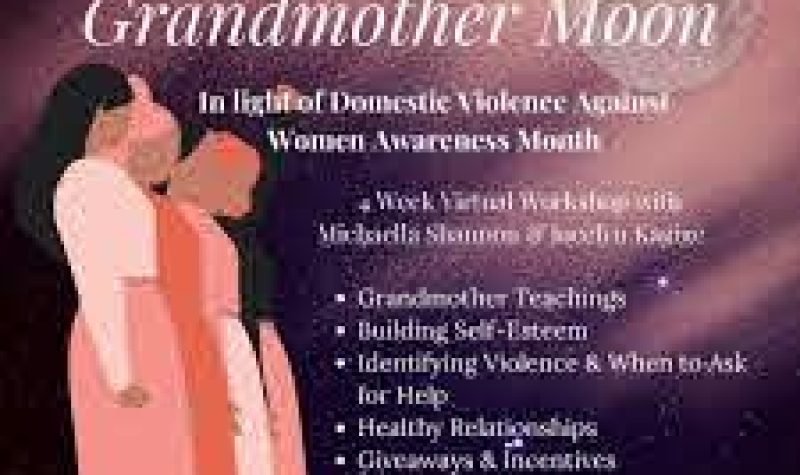Michaella Shannon, a mental health expert for the Support Network for Indigenous Women and Women of Color (SNIWWOC), recently referred to domestic violence and abuse during COVID-19 as a "pandemic within a pandemic."
Shannon made the statement at the end of a four-week workshop called the "Grandmother Moon" workshop series focused on supporting women who may be stuck in toxic relationships and experiencing intimate partner violence.
"The current circumstance is a pandemic within a pandemic, as we’ve seen the rise of both domestic violence and overdose of deaths as a result of COVID-19," Shannon said.
"Public Health Specialists suggest these increases are due to the stay-at-home measures and disruptions to daily life that are aimed to slow the spread of the virus and save lives, which has created a whole, new mental health crisis," Shannon added.
According to a statement released by Dominique Jacobs, SNIWWOC’s communications and resource development coordinator, the workshop held in commemoration of the United Nations' International Day for the Elimination of Violence against Women (Nov. 25).
The month-long virtual workshop series aimed to raise awareness about deaths and issues of mental health arising from domestic violence and abuse.
The SNIWWOC is a non-profit based in Victoria that operates "from a holistic and integrated service model that addresses the social, cultural and political realities of immigrant and indigenous communities," according to its website.
In the statement, Jacobs added that SNIWWOC’s Peer Support program combats isolation by building a network of women helping women. She said the program has shifted from in-person meetings to online support due to COVID-19 restrictions.
"It now offers both virtual group events and one-on-ones, depending on need," Jacobs stated.
She advised victims of domestic abuse to access the SNIWWOC’s community resource experts who offer specialized one-on-one support with things, from navigating the Canadian healthcare system to finding legal advice.
"Our Peer Supporters are available for phone calls and online appointments to support racialized women as community service advocates," Jacobs said.
She added that the Black, Indigenous and People of Color (BIPOC) therapists also help individuals impacted by a number of struggles, including racialized trauma, sexuality/gender identity issues, low self-esteem, anxiety, depression, adjustment, system navigation difficulties, stress management issues and negative thoughts.
To learn more, visit www.sniwwoc.ca.


